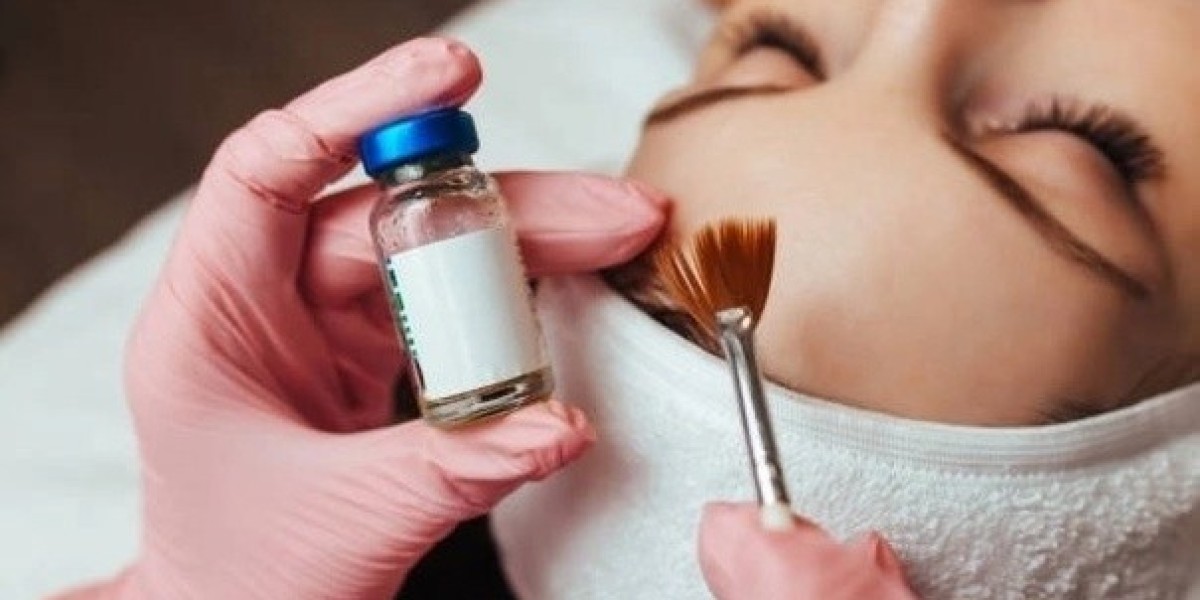Chemical peels have gained widespread popularity as an effective method to rejuvenate skin and address various dermatological concerns. For those interested in enhancing their skin’s youthful appearance, understanding how chemical peels work to boost collagen production is essential. If you’re considering chemical peels in Islamabad, this article will guide you through the science behind collagen stimulation, the benefits of chemical peels, and what to expect from treatment.
If you want to explore professional options, check out the best chemical peels in Islamabad here.
What Is Collagen and Why Is It Important?
Collagen is a vital protein in the body that provides structure, strength, and elasticity to the skin. It acts like a scaffold supporting the skin’s firmness and youthful texture. As we age, collagen production naturally declines, leading to wrinkles, sagging skin, and loss of elasticity.
External factors such as sun damage, pollution, and lifestyle choices can accelerate collagen breakdown. Therefore, treatments that stimulate collagen regeneration are key to maintaining healthy, youthful skin.
How Chemical Peels Stimulate Collagen Production
Chemical peels involve applying a solution containing acids to the skin, causing controlled damage to the outer skin layers. This controlled injury triggers the skin’s natural healing response, which includes increased collagen synthesis.
Here’s how the process works:
Exfoliation: The peel removes dead skin cells and damaged layers, revealing fresher skin underneath.
Inflammation Response: The skin responds to the mild injury by activating fibroblasts, the cells responsible for producing collagen.
Collagen Remodeling: Over the following weeks, new collagen fibers are formed, improving skin texture, firmness, and elasticity.
Improved Skin Structure: The result is smoother, tighter skin with reduced fine lines and wrinkles.
The depth of the peel affects how much collagen stimulation occurs. Deeper peels promote more significant collagen remodeling but require longer recovery times.
Types of Chemical Peels and Their Effect on Collagen
Chemical peels are generally classified into three categories based on penetration depth:
Superficial Peels: Using mild acids like glycolic acid or lactic acid, these peels exfoliate the outermost layer. They cause mild collagen stimulation and are ideal for skin maintenance.
Medium Peels: Using trichloroacetic acid (TCA), these peels penetrate deeper and trigger a stronger collagen response, effectively treating moderate wrinkles and pigmentation.
Deep Peels: Using phenol or high concentration TCA, deep peels stimulate the most collagen growth, suitable for severe skin damage and aging signs.
Benefits of Collagen Stimulation Through Chemical Peels
Stimulating collagen production with chemical peels offers multiple advantages:
Reduced Fine Lines and Wrinkles: Collagen helps plump the skin, softening the appearance of aging signs.
Improved Skin Elasticity: Skin becomes firmer and more resilient.
Even Skin Tone and Texture: Peels smooth rough patches and fade pigmentation.
Acne Scar Improvement: Collagen remodeling helps reduce the depth and visibility of scars.
Overall Skin Rejuvenation: Skin looks fresh, glowing, and youthful.
Chemical Peels in Islamabad: What You Should Know
Islamabad is home to several qualified dermatology clinics offering professional chemical peel treatments tailored to individual skin needs. Consulting a dermatologist is crucial to determine the right peel strength and type for optimal collagen stimulation without adverse effects.
Professional chemical peels in Islamabad deliver safer and more effective results compared to at-home products, which tend to have lower acid concentrations and limited collagen benefits.
The Chemical Peel Procedure
Before the procedure, your skin will be thoroughly cleansed. The dermatologist will apply the chemical solution carefully, monitoring your skin’s reaction. Depending on the peel’s strength, you may feel a mild tingling or burning sensation.
After application, the solution is neutralized or washed off. The skin then begins peeling over the next few days, revealing new skin underneath. You can expect redness, flaking, and sensitivity during recovery.
Aftercare for Maximizing Collagen Benefits
Proper aftercare is vital to protect your new skin and maximize collagen production:
Keep Skin Moisturized: Hydrated skin heals faster and supports collagen synthesis.
Avoid Sun Exposure: New skin is sensitive; use broad-spectrum sunscreen daily.
Follow Dermatologist’s Instructions: Use prescribed products and avoid harsh skincare during healing.
Be Patient: Collagen remodeling takes weeks; continued improvement happens over time.
Risks and Precautions
Though chemical peels are generally safe, improper use can cause:
Skin irritation or burns
Hyperpigmentation or hypopigmentation
Infection (rare)
Always choose a qualified professional for chemical peels in Islamabad to minimize risks and achieve the best results.
Conclusion
Chemical peels offer an excellent non-invasive way to boost collagen production and rejuvenate the skin. Whether you want to reduce fine lines, treat pigmentation, or improve overall skin texture, professional chemical peels in Islamabad can provide safe and effective solutions.
For best results, consult experienced dermatologists who can customize your treatment and guide you through proper aftercare. Healthy collagen levels are key to youthful skin, and chemical peels can help you achieve just that.






